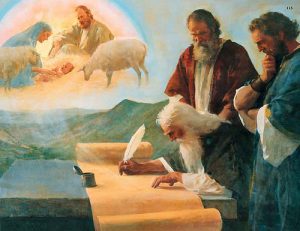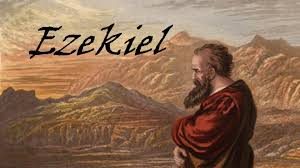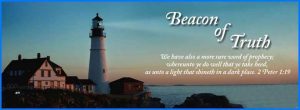
Shownotes
Wisdom-Trek / Creating a Legacy
Welcome to Day 1236 of our Wisdom-Trek, and thank you for joining me.
I am Guthrie Chamberlain, Your Guide to Wisdom
Mastering the Bible – Inspiration through Editing – Worldview Wednesday

Wisdom – the final frontier to true knowledge. Welcome to Wisdom-Trek where our mission is to create a legacy of wisdom, to seek out discernment and insights, and to boldly grow where few have chosen to grow before.
Hello, my friend, I am Guthrie Chamberlain, your captain on our journey to increase wisdom and create a living legacy. Thank you for joining us today as we explore wisdom on our 2nd millennium of podcasts. This is Day 1236 of our trek, and it is Worldview Wednesday. Creating a Biblical worldview is important to have a proper perspective on today’s current events.
To establish a Biblical worldview, you must also have a proper understanding of God and His Word. Our focus for the next several months on Worldview Wednesday will be Mastering the Bible through a series of brief insights. These insights are extracted from a book of the same title from one of today’s most prominent Hebrew Scholars, Dr. Micheal S. Heiser. This book is a collection of insights designed to help you understand the Bible better. When we let the Bible be what it is, we can understand it as the original readers did, and as its writers intended. Each week we will explore two insights.
Mastering the Bible – Inspiration through Editing
Insight Five: Editing Was Part of the Process of Biblical Inspiration

If you’re like most people in the developed world (so it seems), you talk about yourself and your family using social media. If you’re the exception rather than the rule, social media is still understandable by analogy. It’s like a personal diary of what you, your friends, and your family encounter and do every day.
We know how something like that is supposed to read. It would be written in the first person: I did this, then we did that. How odd would it sound if you were reading a friend’s Facebook page, and they talked about themselves using the third person? Instead of what you’d expect your friend to post (“I went to a movie last night”), your friend talked about herself as though she were someone else (“She went to a movie last night”). When someone writes about themselves you expect the first person, not the third. It’s because of that expectation that scholars can tell biblical books were edited.
One of the best examples of this is the book of Ezekiel 1:1-4:
On July 31 of my thirtieth year, while I was with the Judean exiles beside the Kebar River in Babylon, the heavens were opened, and I saw visions of God. This happened during the fifth year of King Jehoiachin’s captivity. (The Lord gave this message to Ezekiel son of Buzi, a priest, beside the Kebar River in the land of the Babylonians, and he felt the hand of the Lord take hold of him.)
As I looked, I saw a great storm coming from the north, driving before it a huge cloud that flashed with lightning and shone with brilliant light. There was fire inside the cloud, and in the middle of the fire glowed something like gleaming amber.

The first verse uses the first person. I underlined the two examples in today’s journal. The beginning creates the expectation that Ezekiel is writing about himself. But in verse three there is a switch to the third person (underlined). Now the writer is clearly not Ezekiel, but is an anonymous author referring to Ezekiel in the third person. Verse four switches back to first person.
These switches are the telltale signs of an editor. The book of Ezekiel has many such instances, as do many other biblical books. That we don’t know the identity of these editors is of little consequence, since the authors of many books in the Bible (particularly the Old Testament) are unknown.
Knowing that biblical books were edited helps us address issues in the text where something appears misplaced. These are not errors but telegraph something to the reader. Scholars work at discerning the purpose of such things. Understanding editing can also help us put certain statements in the Bible in the right chronological context for interpretation.
Insight Six: The Bible Is Not an Exhaustive Repository of All Truth

One of life’s great ironies is that we all believe tilings that are demonstrably false, and perhaps downright silly. Otherwise intelligent people really did believe that the Mayan calendar foretold the end of the world. Some people believe that we never went to the moon. And who knows how many people now believe the earth is really flat?
The Bible is no exception to ill-founded beliefs. One of the most obviously wrong is the notion that the Bible is the source of all knowledge, that every single truth is found within its pages. That’s nonsense. While I believe that all truth comes from God, not all truth is contained in what God chose for us to have in His Word. Otherwise, its correlating thought would be, that if something isn’t mentioned in the Bible, it isn’t true.
The truth of Dr. Heiser’s assertions can be demonstrated thousands of times over. The Bible makes no mention of cars, microwave ovens, toilet paper, planets beyond Saturn, bubble gum, coffee, smartphones, electricity, and disposable diapers. And yet it’s true that all of them are real. The idea that everything which is true is found in the Bible is simply false. And yet I’ve heard Christians say it more than once, even from the pulpit.
One problem with such thinking (and there are many) is that those who think rejecting these ideas is a denial of inspiration tend to force the Bible to comment on tilings of which it has nothing to say. The result is ill-informed ‘“Bible teaching’’ that is patently bizarre.
For example, some people will insist that the Bible mentions dinosaurs, countries like China, races within humanity, or flying saucers. The Bible says nothing about these things. Leviathan is not a dinosaur. It is a well-known ancient symbol for chaos and disorder outside as well as within the Bible. The Table of Nations includes only countries in the ancient Near East and Mediterranean. The subject of biological race distinction was unknown to biblical writers, who primarily separated peoples according to religion and language. People groups in the Bible are distinguished by language, geography, and the gods they worship. Ezekiel 1 does not describe a UFO— all the imagery in that passage is known from ancient art and sculpture.
Forcing the Bible to “teach” something absent from its pages means distorting its content and producing false beliefs in the name of truth. This is not only irresponsible, but it also sets up the Bible to fail as a source of truth for the things it does talk about.
The solution is simple. We need to let the Bible be what it is. Its content is deliberately selective since each author, living and writing under God’s providence, had goals for communication. Our task as Bible interpreters is to understand what Scripture says in its own context, not to add to it.
That will conclude this week’s lesson on another two insights from Dr. Heiser’s book “Mastering the Bible.” Next Worldview Wednesday, we will continue with two additional insights. I believe you will find each Worldview Wednesday an interesting topic to consider as we build our Biblical worldview.
Tomorrow we will continue with our 3-minute humor nugget that will provide you with a bit of cheer and help you to lighten up and live a rich and satisfying life. So encourage your friends and family to join us and then come along with us tomorrow for another day of our Wisdom-Trek, Creating a Legacy.

If you would like to listen to any of our past 1235 treks or read the Wisdom Journal, they are available at Wisdom-Trek.com. I encourage you to subscribe to Wisdom-Trek on your favorite podcast player so that each day’s trek will be downloaded automatically.
Thank you for allowing me to be your guide, mentor, and, most of all, your friend as I serve you through the Wisdom-Trek podcast and journal.
As we take this trek together, let us always:
- Live Abundantly (Fully)
- Love Unconditionally
- Listen Intentionally
- Learn Continuously
- Lend to others Generously
- Lead with Integrity
- Leave a Living Legacy Each Day
I am Guthrie Chamberlain reminding you to Keep Moving Forward, Enjoy Your Journey, and Create a Great Day Everyday! See you tomorrow!